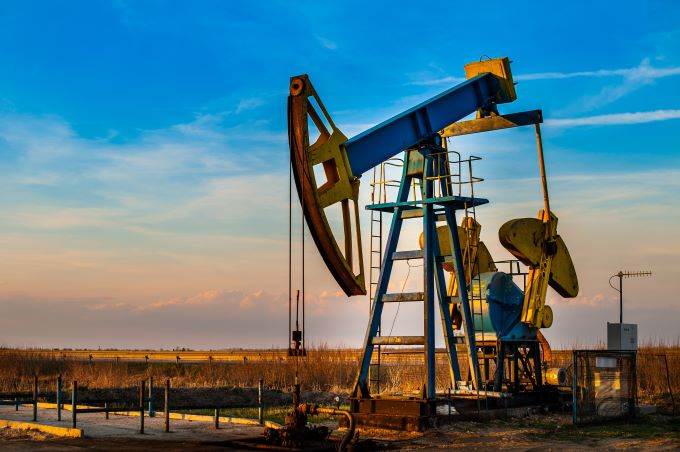 Brent crude futures fell as much as 13 percent in the Asian afternoon on Wednesday as the market continued to struggle with high levels of oversupply and reduced demand due to coronavirus closures. Wednesday’s steep declines for Brent crude futures came after the commodity fell 24 percent on Tuesday, hitting a low of $15.98 per barrel, the lowest price since June 1999.
Brent crude futures fell as much as 13 percent in the Asian afternoon on Wednesday as the market continued to struggle with high levels of oversupply and reduced demand due to coronavirus closures. Wednesday’s steep declines for Brent crude futures came after the commodity fell 24 percent on Tuesday, hitting a low of $15.98 per barrel, the lowest price since June 1999.
The June contract for WTI also fared poorly on Wednesday, erasing all of its earlier gains and falling 3 percent to $11.20 per barrel. The July WI contract was trading flat around $19 per barrel. The high oil volatility has come to a head as supply looks poised to overpower demand for months, and global storage capacity already nearly full. OPEC and its allies have agreed to a production cut of 9.7 million barrels per day, but analysts don’t think it’s enough to balance the current oversupply and the nearly non-existent demand. Oil prices have fallen by nearly 80 percent since the start of 2020.
On Tuesday, the American Petroleum Institute announced that U.S. crude inventories rose by 13.2 million barrels last week, to 500 million barrels. Estimates were for a rise by 13.1 million barrels. Further data is expected from the Energy Information Administration later today.
As of 2:34 p.m. HK/SIN, Brent crude futures were trading at $16.93 per barrel, and U.S. WTI futures were trading at $11.05 per barrel, down 4.49 percent.
Impacts on Consumers
The upside of lower oil prices is that gas prices are expected to go down across the globe. Likewise, airlines will be paying less for fuel, which may lower ticket prices. Nevertheless, a decline in demand for flights may require airlines to raise prices as they continue to bleed money due to groundings.
According to reports by Reuters, as much as 30 million barrels of oil per day has been sent to worldwide storage facilities in the past three months. Even if demand were to return to prior levels, which is unlikely in the near term, it would take a very long time to use all of the stored crude oil.
Though many global economies are looking for ways to reopen gradually, signs from China indicate that a second wave of infections may be forthcoming if businesses and leisure activities are open too soon. In other words, consumers may not be able to benefit from lower gas prices as they don’t have anywhere to go and won’t likely have reason to leave home for quite some time.
